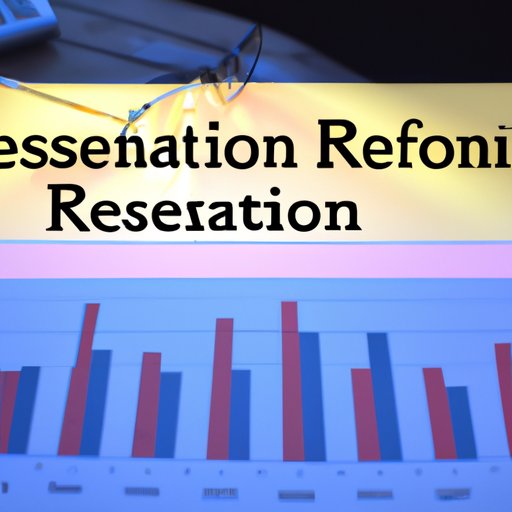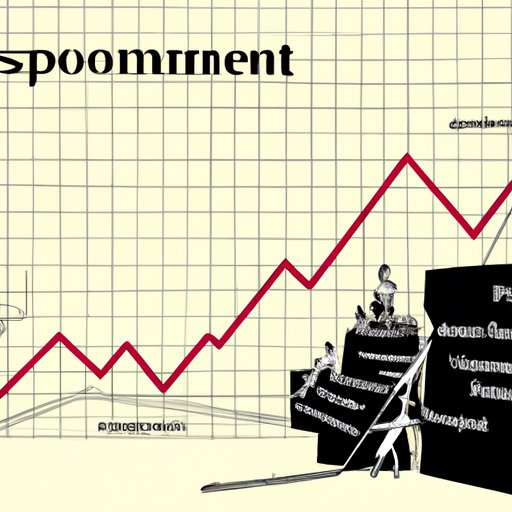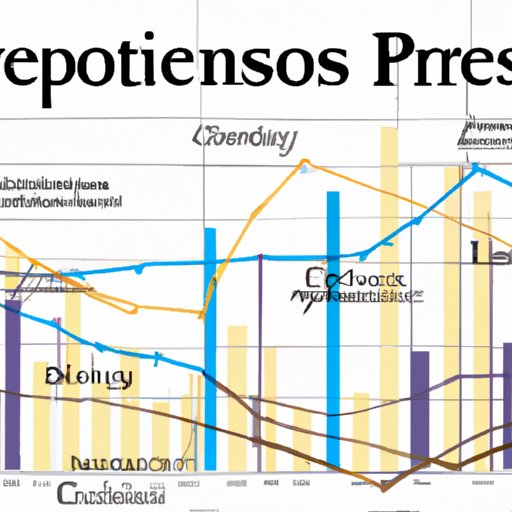Introduction
A recession is defined as a period of economic decline that lasts for at least six months. During a recession, investments are often seen as risky due to the uncertain economic climate. However, there are still ways to make wise investments during a recession. In this article, we will explore how to research economic indicators, consider government policies, analyze market conditions, utilize online tools, and address potential psychological barriers when it comes to investing during a recession.

Research the Economic Indicators of a Recession and How to Invest Accordingly
The first step in investing during a recession is to research economic indicators to identify whether a recession is occurring. According to Investopedia, some economic indicators to watch for include increased unemployment, declining home prices, and reduced consumer spending. Once a recession has been identified, investors should evaluate different types of investments to determine which are best suited for a recession. For example, according to the Harvard Business Review, “investors should focus on conservative investments, such as US Treasury bonds, high-dividend stocks, and cash equivalents during recessions.” It is also important to consider the potential risks and rewards associated with investing during a recession.

Consider the Impact of Government Policies on Economic Recessions and the Stock Market
Investors should also investigate government policies that could affect the stock market and economic recessions. According to the Congressional Research Service, “government policies can have a significant impact on economic recessions, both positively and negatively.” For example, the Federal Reserve has implemented various monetary policies, such as lowering interest rates, to stimulate economic growth during recessions. It is important to analyze how government policies have impacted previous recessions to gain insight into how they may affect current and future recessions.
Analyze the Current Market Conditions and Identify Sectors That May Benefit from a Recession
Once investors have an understanding of the economic indicators and government policies that could affect the stock market, they should research current trends in the market to identify sectors that may benefit from a recession. According to CNBC, “investors should look for sectors that tend to perform well during recessions, such as health care, consumer staples, and utilities.” It is also important to evaluate the potential risks of investing in those sectors.
Utilize Online Tools, Such as Portfolio Trackers, to Monitor Investments in a Recession
In order to monitor investments during a recession, investors should utilize online portfolio trackers. According to Forbes, “online portfolio trackers provide investors with real-time data on their investments so they can make informed decisions.” Additionally, investors should consider automated investment tools to manage risk when investing during a recession. Automated investment tools use algorithms to create a diversified portfolio based on an investor’s risk tolerance and goals.

Address Potential Psychological Barriers When It Comes to Investing During a Recession
It is also important for investors to recognize psychological barriers that can prevent successful investing during a recession. According to the Journal of Behavioral Finance, “investors tend to be overly pessimistic during recessions and may not take advantage of potential opportunities.” To overcome psychological barriers, investors should develop strategies to make informed decisions when investing during a recession. For example, investors can set realistic goals and create an investment plan to stay focused on long-term objectives.
Conclusion
In conclusion, investing during a recession can be a daunting task. However, by researching economic indicators, considering government policies, analyzing market conditions, utilizing online tools, and addressing potential psychological barriers, investors can make wise investments during a recession. Remember to research current trends in the market to identify sectors that may benefit from a recession and investigate government policies that could affect the stock market.
(Note: Is this article not meeting your expectations? Do you have knowledge or insights to share? Unlock new opportunities and expand your reach by joining our authors team. Click Registration to join us and share your expertise with our readers.)
